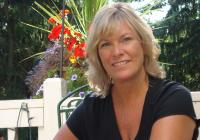
Undoubtedly all of you have heard about the significant cuts facing higher education in Washington State. We do not yet have specific details about how these cuts will affect the University of Washington and the Department of Anthropology, but we do know that this will be the largest budget reduction the University has ever experienced. For us, the squeeze is particularly tight, since anthropology remains the fastest growing major in our college, with now nearly 6oo undergraduate majors. Our…
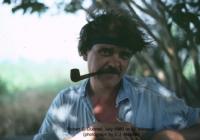
By James FeathersResearch Associate ProfessorDirector, Luminescence Dating LaboratoryPhD 1990, Dunnell advisee
Robert C. Dunnell, 68, former department chair and a renowned leader in American archaeology, died December 13, 2010 of congestive heart failure near his home in Natchez, Mississippi, after several years of illness.
Dr. Dunnell started in archaeology as a teenager growing up in West Virginia, his work even appearing in a local newspaper at age fourteen. He graduated from the University…

Instructor: Professor Ann Anagnost
“My friends are all envious because we get to cook in class,” a student told anthropology professor Ann Anagnost in 2007, the first time she taught “Food for Thought” as an early fall start seminar for freshman. Since then, the class has been turned into an upper division course for both anthropology majors and a growing number of non- majors interested in interdisciplinary food studies.
Student interest in food issues seems to be expanding exponentially on…
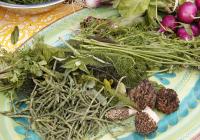
By Melissa Poe
Anthropologists have written extensively about foraging traditions in small-scale societies, but few have examined wild food foraging practices in urban, post-industrial spaces. This can be explained, in part, to the predominant idea that “urban” and “nature” are mutually exclusive concepts. To address this gap, department alumnus Melissa Poe, with a team of geographers and policy analysts—including Marla Emery, Patrick Hurley, Rebecca McLain—has worked since 2008 to better…
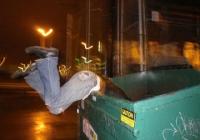
By David Giles
On any given Sunday, the Pike Place Market is a busy place. At the peak of the summer, “busy” can mean almost sixty thousand visitors in a day. And in the space of a year, it may mean ten million, tourists and locals alike, most of them there to shop. The market is one of Seattle’s most iconic attractions, with a spectacular range of shops and stalls. Maybe most iconic are the post-card-perfect rows of fruit and vegetables. And from those rows, many of the visitors are here…
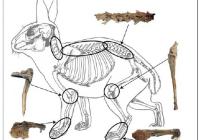
By Jacob Fisher
As a zooarchaeologist, Jacob Fisher is interested in understanding how people select and convert raw food to cooked products. He became particularly interested in “culinary processing” when analyzing skeletal remains—mostly jackrabbits—from Antelope Cave, a Virgin Anasazi site located in northern Arizona. The well-preserved remains came from deposits dating from approximately AD 680 and 960, and consist of bone, fur, skin, and desiccated entrails.
He identified how…
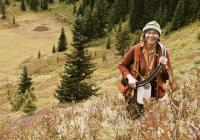
By Joyce LeCompte-Mastenbrook
Joyce LeCompte-Mastenbrook’s dissertation research is examining the connections between traditional foods revitalization in Coast Salish territory and the scientific and political aspects of management of public lands in the Cascades of Washington and British Columbia. As foodways are integral to cultural identity, food sovereignty is likewise central to the social, cultural, physical, and spiritual well being of indigenous people and communities. Chronic and life-…
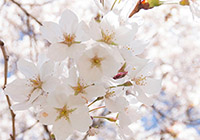
By Marie Spiker
What do you eat for dinner on a typical weeknight? How does that compare to what your parents might eat? And what about your children? As an undergraduate in the Medical Anthropology and Global Health Track, Marie Spiker has been exploring these questions with pairs of parents and children of Chinese descent to understand shifts in dietary behavior between generations. She feels fortunate to undertake an honors thesis under the mentorship of Dr. Rachel Chapman, and her work…

John Cady and Ellie Brindle have been nominated, by the Department of Anthropology and the Center for Studies in Demography and Ecology (CSDE) respectively, for Distinguished Staff Awards. Best of luck to both!
Assistant Professor Ben Marwick is on research leave with his family in Thailand where he is planning a series of excavations in the…

On January 22, 2010, four anthropology undergraduates were the guests of KEXP host Mike McCormick for a 30-minute live radio show. Alice Jacobson, Alex Ferrante, Paul Glantz, and Brock Malberg were invited to the community discussion forum to share student perspectives about the environmental health and public policy legacies their generation will inherit from the former plutonium production facility in Eastern Washington (Hanford). The radio show was the students'…